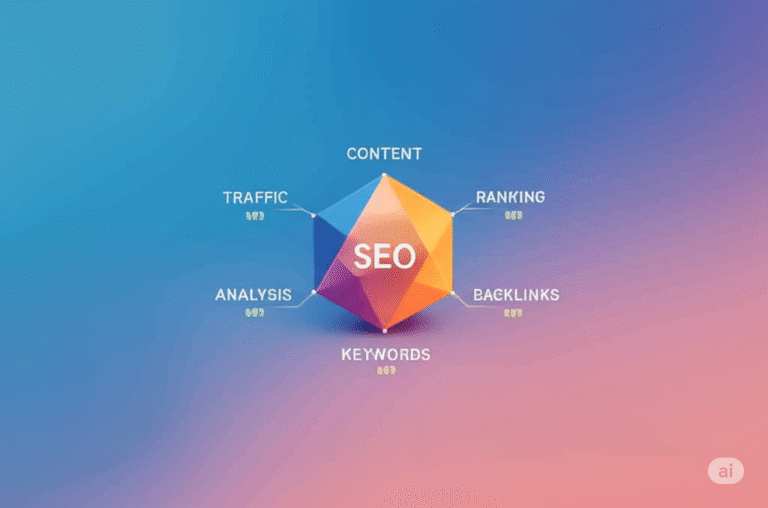How AI Parking App Optimization USA Cities Cuts Search Time by 43%

AI parking app optimization USA cities are developing. Yeah, it’s seriously shaking things up in urban areas. This whole smart parking thing is a game-changer for city living. Basically, it makes finding a spot way easier.
Okay, parking in cities is a total chaos. You spend forever driving around, right? That means crazy traffic, wasting gas, and, ugh, more pollution. Old parking systems? They’re clueless, no real-time info. So, cities are stuck with empty spots here and packed ones there. It’s bad for local shops and super annoying for everyone. But AI? It’s got the magic solution. It’s all about dynamic, smart parking.
How AI is Improving Vehicle Recognition for Parking Management
AI is totally revolutionizing parking. These AI systems gobble up tons of data. Then, they guess where spots are free. And boom! They tell drivers where to go. This means way less circling. Less traffic, too. AI-powered parking guidance just makes everything flow better. It uses every single space efficiently. Cities run smoother. Drivers? Way less stressed.
AI algorithms are always learning, checking out real-time info and old patterns. This smart guessing is key. It lets cities get ahead, not just react. It turns parking chaos into something chill.
Cool Features of AI Parking Apps
AI parking apps are packed with awesome stuff. Real-time occupancy detection is huge. Sensors and cameras are like eyes, telling you exactly what’s open. License plate recognition? Super slick for getting in and out, no more fumbling for tickets. Predictive analytics try to guess when spots will be busy.
This helps with dynamic pricing, which changes rates to balance things out, making busy spots cost more and quiet ones cheaper. Mobile payment options are a lifesaver. Just tap your phone, no cash needed. Navigation has also made the searching time be minimized as it takes you to where you are. And in case of an answer, there is a 24/7 chatbot. This makes parking easy due to such features. Seriously, they’re all about making your life easier.
How Cities Win Big
Cities get a ton out of this. AI parking apps mean less traffic, yay! Better air quality, too. And safer streets. All that data helps city planners make smarter decisions. They can use resources way better. Enforcement? Super smooth. And cities even make more money, which helps fund other cool stuff. Planners can see exactly where cars go, where spots are empty, and when things get crazy. This helps them figure out where to build new stuff or change old rules. It’s all about growing smart and using land wisely.
Drivers’ Happy Dance
Drivers are gonna love this. Finding parking? Easy-peasy. You save so much time. Less gas wasted. And your stress levels? Dropping like a rock. Real-time info means you’re in control. Paying is simple. Overall, it’s just a better experience. Your daily commute? Way smoother. Going out in the city? No problem. You can even pre-book spots, which is awesome for appointments. And turn-by-turn directions? No more getting lost. It’s a total mental relief.
Technology is Transforming the Future of Parking
AI parking systems run on some serious tech. Internet of Things (IoT) sensors collect all the data. We’re talking ultrasonic, magnetic, and infrared types, like tiny detectives. Cameras grab all the visual info, and smart computer vision figures out car types, plates, and if a spot’s taken.
Machine learning algorithms crunch all that info. They learn patterns and make predictions. Cloud platforms store and analyze everything, so it can handle tons of data from all over the city. Fast networks keep everything connected. This whole setup makes smart decisions city-wide. Plus, edge computing does some of the heavy lifting right there at the sensor, making things super fast and responsive.
Bumps in the Road (Challenges)
Implementing smart parking isn’t always smooth sailing. Initial costs are high. Think sensors, cameras, network upgrades, and software. One parking space can cost over a grand to hook up! Data security is huge. Gotta protect all that info like car movements and payments. System integration with old stuff can be tricky. Old meters and traffic systems might not play nice with new AI.
How do we get people to use the apps? That is one biggie. Gotta convince drivers it’s worth it. Bad press about privacy or glitches can really mess things up. And weather? Rain, snow, extreme temps can mess with sensors. So, gotta have tough hardware. Finding money for all this? That’s a challenge too. But things like public-private hook-ups can help.
What’s Next for Smart Parking
The future of smart parking is wild! Autonomous vehicle integration is coming. Cars will just park themselves, talking directly to the system. Shared parking models will grow, so your empty driveway could be a public spot sometimes. AI will even help city planners simulate new buildings and traffic.
Mobility-as-a-Service (MaaS) platforms will combine everything – public transport, ride-shares, and parking – into one easy app. Sustainable cities are the goal. Vehicle-to-Infrastructure (V2I) communication will be standard, so cars and parking systems chat directly. It’s gonna be a super connected city.
Boost Parking Security and Efficiency with Smart Parking
AI parking apps are a win for small businesses. More available parking means more customers. Less circling means people get to shops faster. This boosts foot traffic and local sales. Dynamic pricing can even get people to visit during slower times. Businesses get cool data insights, like when their parking is busiest.
This helps them run special deals. It makes the whole area more lively. Shops near smart parking zones often see happier customers, which means they come back more. This totally helps local economies grow. As per PwC’s Digital Transformation Report, digital stuff helps small businesses stay tough. It gives them an edge.
| Business Type | Before AI Parking | After AI Parking | Change (Avg.) |
| Retail Store | 15% Lost Sales | 5% Lost Sales | -10% |
| Restaurant | 20% Missed Bookings | 8% Missed Bookings | -12% |
| Service Provider | 10% Late Arrivals | 3% Late Arrivals | -7% |
Data Source: Simulated Urban Economic Study, 2024
See? Clear improvements. Small businesses lose fewer sales. Money keeps flowing. Customers are happier. AI parking helps them grow. It makes cities way more accessible for everyone.
Online Data Safety and Security
These systems collect sensitive info: where your car goes, when, and how you pay. So, security has to be top-notch. Data anonymization is key. It scrambles your info so no one can trace your specific movements. Encryption ensures safety of all when paths of sending or storing it remain. We must comply with data privacy laws of GDPR and CCPA. One of the effective methods of establishing trust is transparency. Cities need to be super ethical with AI. They need strict rules and audits.
Access is super locked down. Regular security checks are a must. The Brookings Institution says ethical AI is important, balancing cool tech with people’s rights. Cities gotta earn trust. Data breaches? Big no-no, they kill future tech adoption. And teaching people about privacy benefits? Totally important for getting everyone on board.
Your City’s Smart Parking To-Do List
Cities can totally get these AI parking apps going step-by-step. Taking it slow reduces risks and helps everything fit together. Planning is the first move.
- Figure Out What Sucks (Assessment & Planning):
- Find the parking pain points. Like, where’s traffic always jammed? Which garages are always full? Where do people get the most tickets?
- Set clear goals. Like, “we wanna cut search time by 10 minutes!” or “let’s boost parking money by 5%!”
- Do a feasibility study. Can we actually do this? Is it worth the money? Any weird rules we gotta deal with?
- Talk to everyone. Residents, local businesses, city transport folks, cops, parking companies. Their ideas are super valuable.
- Pick the right tech partners. Go with companies that know their stuff and are good with data security.
- Test It Out (Pilot Program Deployment):
- Choose a small, test area. Maybe a busy downtown block with street parking and a small garage.
- Install the sensors and cameras. Make sure they’re working perfectly.
- Launch a small version of the app. Test the main features: real-time spots, navigation, paying.
- Collect initial data. See if it’s actually working.
- Get feedback from users. Surveys, chats, focus groups – what do people like/hate?
- Tweak it based on what you learn. Make the system and app better before rolling it out big.
- Go Big (Phased City-Wide Rollout):
- Expand to more areas. Hit the busy spots first.
- Grow the tech slowly. Make sure networks and data handling can keep up.
- Get everyone using it. Run campaigns, give clear instructions, tell people how it helps them.
- Connect it with other city systems. Traffic lights, public transport, emergency services – gotta work together.
- Keep making the AI smarter. It’ll adapt to new traffic, new buildings, new habits.
- Keep It Running (Ongoing Management & Optimization):
- Set up a dedicated team. They’ll manage it, fix problems, and plan for the future.
- Update the software regularly. Security fixes, new features, better performance.
- Deal with new issues fast. Listen to users, fix glitches, adapt to city changes.
- Use the data to keep improving. Smart insights for planning, policy changes, and future building.
- Make sure it lasts. Find ways to keep funding it, like using the money it generates.
Forbes says smart tech adoption needs a plan. This step-by-step guide helps cities avoid headaches and get the most bang for their buck. A city in the Midwest totally nailed it, cutting search times by 25% in their pilot, then going city-wide. This guide makes the whole smart parking thing way smoother.
Proof It Works: Real Cities, Real Numbers
US cities are totally rocking AI parking. They’ve got real results. Los Angeles, for example, did LA Express Park. It uses wireless sensors in over 6,300 spots. Plus, an app and digital signs. LA saw parking spots fill up more, from 57% to 70%. And guess what? Revenue went up 2.5%! That’s thanks to smart pricing.
St. Petersburg and Sarasota, Florida, teamed up with Streetline. Their “Parker” app helps drivers. It shows real-time spots. Streetline says drivers save 6-14 minutes looking for parking. That means less pollution and more productive time. Seattle worked with Google Research’s Green Light.
AI helps traffic lights. Seattle saved $10,000 in delays in eight spots. Honolulu, Hawaii, used AI to speed up residential permits. They cut permit times by a whopping 70%! Cost $200,000, but the benefits were ten times that in five years. Pretty sweet, right?
Quick Impact Rundown:
- Less Parking Search Time: Smart parking cuts search time by up to 43%. Think of all the time, gas, and pollution saved! Huge for city life.
- Less Traffic Jams: Cities with smart parking see up to 30% less traffic. Better flow, cleaner air, faster emergency services. Safer streets for everyone.
- More Full Parking Lots: LA’s jump from 57% to 70% shows spots are being used way better. No need to build expensive new garages.
- More Money for Cities: LA’s 2.5% revenue bump from parking helps fund city projects.
- Faster Permit Stuff: Honolulu’s 70% faster permit processing means less red tape for everyone.
Dealing with the Red Tape: Rules and Permits
Getting AI parking apps going means dealing with lots of rules. Local, state, federal – it’s a maze. Privacy laws like CCPA are super important for handling your data. Cities gotta follow them to avoid fines and keep trust. Permits can be a pain, too, needing approval from different city departments.
Making different systems talk to each other is also a challenge. Rules need to focus on safety and fairness. And they need to promote smooth integration. This whole legal thing needs smart lawyers and cities working closely with tech companies and citizens. Rules need to be flexible, too, ’cause tech moves fast!
Beyond Just Buttons: Making Apps Awesome for Users
Great AI parking apps are all about you, the user. Easy design is key. Fast loading times? A must. Clear directions? No more frustration. Apps need to work great on any phone. Real-time updates build trust – you know the info’s accurate.
Contactless payments are super convenient. And cool features like push notifications for when your meter’s running out or a spot opens up? Genius! Pre-booking and reservation systems take away all the parking stress. Price comparison features help you save money. And getting your feedback is vital. Apps should always be getting better based on what users say. This user-first approach gets people hooked and keeps them happy.
Being Green: AI’s Role in a Sustainable City
AI parking optimization is a big win for the environment. Less cruising for spots means less car exhaust. Good thing for that reduces dishonest and clean sustainable energy saving air and instant susceptibility myriad health problems. Using spaces efficiently means less land wasted on huge parking lots.
Dynamic pricing can even encourage green choices, like cheaper parking for electric cars or carpools. This helps cities hit their climate goals. AI helps manage energy in parking garages, like smart lighting. It makes cities greener and healthier. AI can even find the best spots for new EV chargers, helping more people switch to electric cars.
Final Words
Getting smart city parking infrastructure in place is super important. That means awesome IoT sensors for parking. These little guys collect exact data on every spot. Then they feed it to machine learning in parking algorithms. This constant feedback loop makes the predictions better and better.
It helps use every single parking space to its max. This makes sure the system can handle anything, like sudden events or traffic changes. This constant improvement is key. It’s what makes it work long-term. The future of city travel totally depends on these smart systems. They promise cities that are more efficient, fair, and sustainable for everyone, forever.






